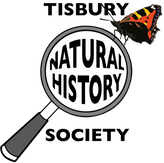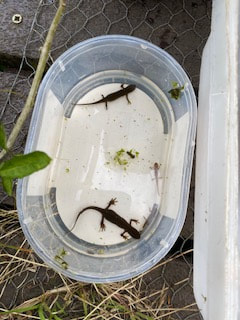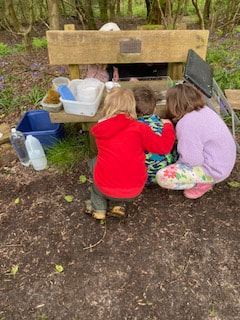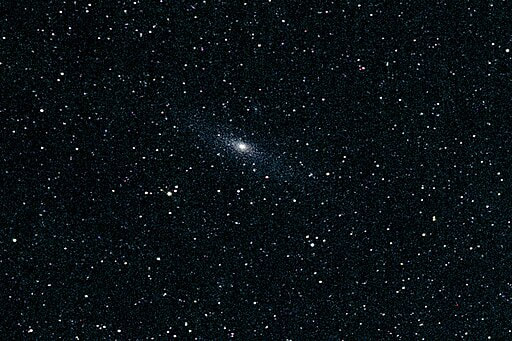|
On the 10th of August we have an owl dissection marathon between 10 and 1 pm at the Hinton Hall.
This is a joint event between Young Nature Watch (Tisbury and District Natural History Society) and the Wiltshire Mammal Group and is a suitable activity for all ages and levels of experience. We will provide all equipment and necessary guidance for those who need it. The aim will be to dissect as many pellets as possible, to obtain information about the prey items of barn owls in the local area and assist the Mammal Society in finding out the spread the Greater White-Toothed Shrew, a species of invasive shrew that has been recently found in Eastern England for the first time. No bookings required, just drop by at any time and stay as long as you feel like! This is a free activity for children, members of our society and the Wiltshire Mammal Group, a small fee of £2 for non-members is welcome! If you would like to have more information, please get in touch!  Andrew and Inés had done some moth trapping overnight in their gardens, on thankfully a dry night and so we had about 100 moths of all sizes to study. Some were kept in the breathable zip up see-through nylon carrier so that we could view them from all angles, whereas others were resting in darkened containers, nestled into the valleys of several egg boxes inside. Andrew had also brought some Cinnabar caterpillars feasting on ragwort, their only food source and an adult Cinnabar moth was spotted in the nylon carrier too. At one point we counted 12 Buff Ermine moths which had kept close to each other and interestingly had a wide range of buffness, from a sandy colour to dark apricot. It made us ponder why they displayed such a wide colour range. Some moths were comfortable with exploring human fingers, arms and even ears! The star of the morning was a large Privet Hawkmoth which entertained us with its travels across the bodies of willing YNW volunteers. Some of the many other moths we identified included: Elephant Hawkmoth, Poplar Hawkmoth, Swallow-tailed, Brussels Lace, Mother of Pearl, Large Yellow Underwing, Thistle Ermine, Peppered, Brimstone Moth, Common Footman, Buff Footman, Coronet, The Uncertain, Light Red Arches, Dark Arches, European Corn Borer, Small Magpie, Common Wainscot, Riband Wave, Small Fan-footed Wave, Yellow Wave, Bright-Line Brown-Eye, Early Thorn, Foxglove Pug and Common Rustic. Andrew Graham will be setting up some moth traps the night before and will carefully bring the moths to the Hinton Hall on Sunday 14th July. Come for a 10am start and find out about the beauty and diversity of night-flying moths (they will be released unharmed afterwards). If you would like to join us, please let us know either by the contact page or the Young Nature Watch email.
Come and join us for a Midsummer Meadow Safari on Saturday June 22nd, 2pm at Tisbury Community Meadow (beside the George V playing field).
Please bring something to sit on (the grass may be damp!) and a phone or tablet that you can use to take photos rather than touching the flora and fauna – take only photos, leave nothing behind, make special memories. Contact us to book your place! 10th August 2024 Owl pellet dissection marathon - Hinton Hall, Tisbury
Do you know what is an owl pellet? Join aficionados to owl pellet dissection to find out (in practice!) about barn owls diets, how to identify small mammals and help discover if we have a new species of shrew in Wiltshire. 12th October 2024 Harvest mouse nest survey - field near Tisbury Did you know that the harvest mouse is the smallest rodent and also the only rodent with a prehensile tail in the UK? Help us find out more about the distribution of this possibly endangered mammal, and find out about its habits, how to find the nests where it sleeps and breeds in summer, and how to tell their nests from those of other animals. On Saturday, Tisbury Young Naturalists enjoyed a visit to Oysters Coppice, Gutch Common to meet the newts that live there and find out about the three different sorts of newts we have in the UK.
In the pond, we found palmate newts and smooth newts. The youngsters were also shown how to search for (without disturbing!) newt eggs. The female newts, very cleverly, lay eggs individually on leaves just above the water line and then fold the leaf over and stick it down to provide a safe home until the newt hatches. We learned that some newts can live for up to twenty years and that newts have a unique pattern of spots and so they can be identified. After thanking the newts for allowing us to visit, we tiptoed away to let them get on with their watery but fascinating lives. Emma Procter In May, we will have a newt session, planned for 5pm on Saturday May 4th. This session will be in Semley and numbers will be limited to a maximum of 12 people, so it’s a first come, first served basis.
If you are interested in joining, please get in touch and we will email you back to confirm the details. Our activity in April is a leaf identification competition. This will be on Saturday 6 April between 11am-12.30 pm at the Tisbury Community field.
Participants will be sent on a hunt for tree and shrub leaves within a piece of land, learning about our native flora - and their special relationship with butterflies and moths - with our in-house expert Peter Shallcross. There will be a reward for the fastest participant that completes the leaf challenge! So far the weather forecast for the day looks good, crossing fingers it stays that way. If you would like to join, please get in touch! Unfortunately, due to the stormy weather we need to cancel this event. We shall let you know if we are able to put it on at another time.
The Young Nature Watch event for March is Stargazing with Steve Tonkin, an expert in astronomy from Cranborne Chase National Landscape on Thursday March 28th, at 7.45pm at Dinton Park. The sun will set at 18.28 that night, however it will not be truly dark until after 8pm and the stars will be best seen after then but it is the night before Good Friday and so you could have a lie in the following morning if this is past your usual bedtime!
Wrap up warmly and bring a torch as the car park will be dark (there will not be a moon shining to guide your way!) and the surface is uneven. If you have binoculars or a telescope, bring those along too. The What3Words location is hoofs.funds.branched, the postcode is SP3 5HH. We will meet in the car park and then walk onto Dinton Park to get a good view of the night sky. If you would like to come, please book a place by letting us know your name and a contact number by March 14th on the Young Nature Watch email or via the main contact form, to enable us to make sure that we have enough expert volunteers and that we can contact you in case of bad weather. This event is free for anyone under 21 years of age and anyone aged under 12 years will need an adult to accompany them. Let's hope for a starry, starry night. |
Young Nature Watch (YNW) is a branch of the Tisbury and District Natural History Society (T&DNHS).
YNW is free for under-21s! Young people always have priority at any of our activities but accompanying adults are required for under-12s. For adults, annual membership for the T&DNHS (£10) or a £2 fee per event (for non-members) is due. Download our annual programme below!
Join our mailing list to be the first to hear about our events! You can also follow us on:
YNW logo design by Izzy Fry.
Categories
All
Archives
May 2024
|
||||||
Proudly powered by Weebly









 RSS Feed
RSS Feed